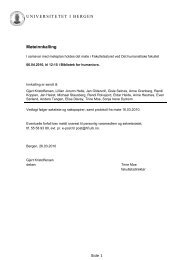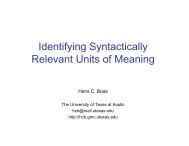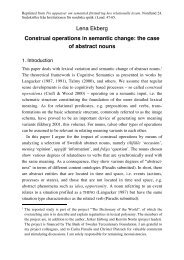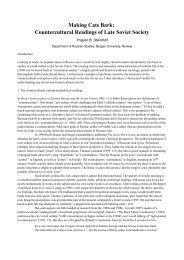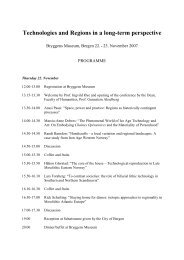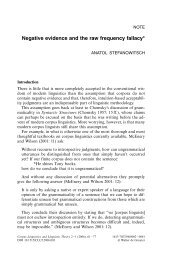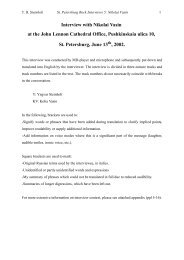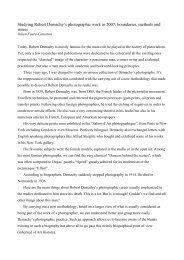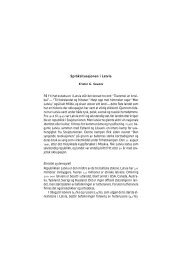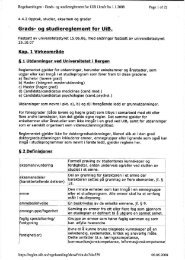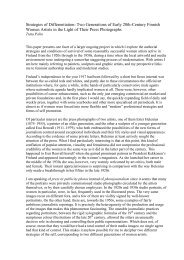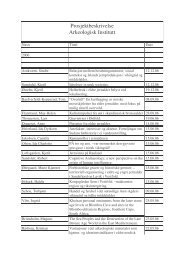THE BOOK OF POEMS IN TWENTIETH-CENTURY ... - TopReferat
THE BOOK OF POEMS IN TWENTIETH-CENTURY ... - TopReferat
THE BOOK OF POEMS IN TWENTIETH-CENTURY ... - TopReferat
You also want an ePaper? Increase the reach of your titles
YUMPU automatically turns print PDFs into web optimized ePapers that Google loves.
бытия," recalls the book’s title, "Путем зерна." Here, however, the "path of existence"<br />
is seen as a fateful trap rather than a natural pattern of life and death to be embraced and<br />
accepted. The speaker is condemned to eternal torments without any hope of relief or<br />
regeneration. Even through suicide he cannot escape his fate—he will inevitably be<br />
reborn into the same life of pain and poison. Such a bitter statement against the hopeful<br />
message of "Путем зерна" no longer finds a place in the 1927 edition of the book. In the<br />
final book Khodasevich continues to express moments of doubt and despair (e.g. "Утро,"<br />
"У моря"), but these moments never close off the potential for life and hope, and they<br />
never threaten to silence the poet.<br />
Poems added to the final edition of Путем зерна<br />
Unlike the wholly pessimistic additions to the 1921 edition, the four new poems<br />
included in the final edition of Путем зерна all support the central idea of the book—the<br />
cycle of death and rebirth set out in the opening poem. Each also reflects Khodasevich's<br />
move away from the immediate expression of his own youthful emotions to a more<br />
mature contemplation of universal questions. He places three of these poems, "Брента,"<br />
"Мельница," and "Акробат" in the fifth, sixth and seventh positions of the book,<br />
following the title poem, "Слезы Рахили," "Ручей," and "Сладко после дождя теплая<br />
пахнет ночь." In effect these new poems take the place of the excised cluster of poems<br />
originally placed after "Ручей" and "Слезы Рахили": "Авиатору," "Газетчик,"<br />
"Уединение," "Как выскажу моим косноязычьем," "Рыбак," and "Воспоминание." I<br />
will argue that one of the new poems, "Акробат," acts as a direct replacement for<br />
"Авиатору." "Брента" and "Мельница" do not respond specifically to individual<br />
poems, but rather provide a general relief from the overwrought emotion of the earlier<br />
63



